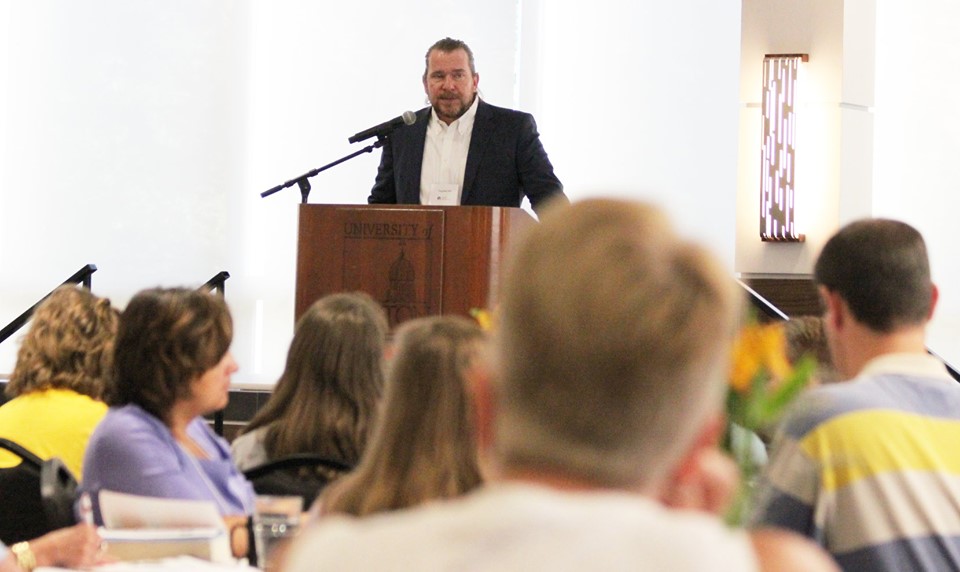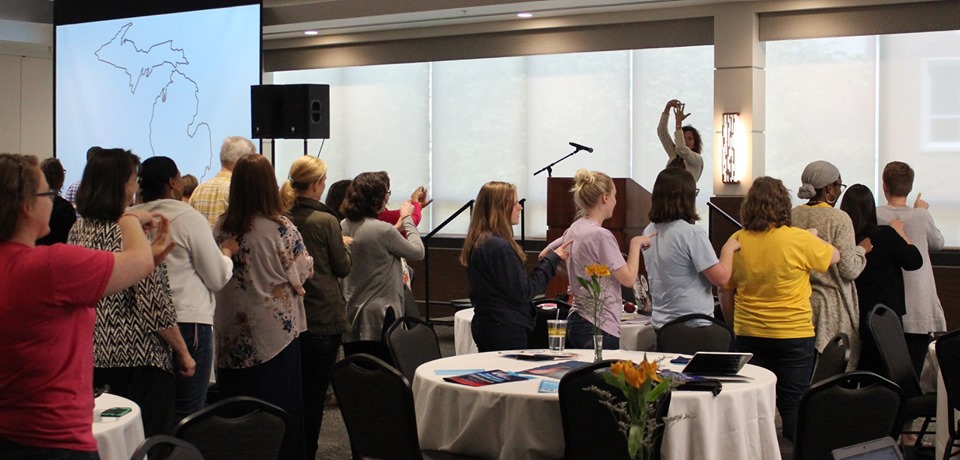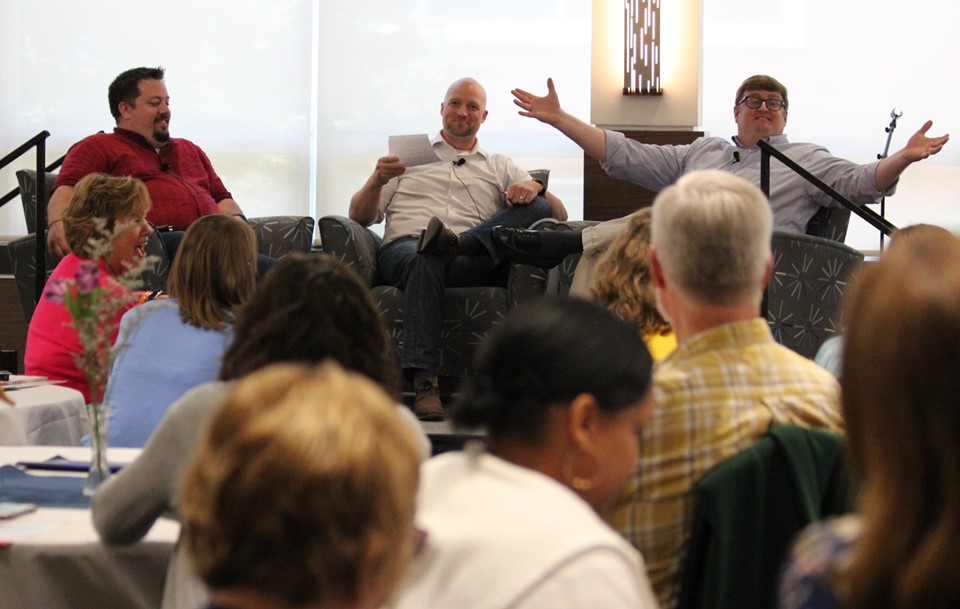Center for Catholic Education at UD

5 Takeaways from the 2019 Summit
By Lindsey Bronder
On June 21 we held the 2019 Catholic Education Summit. We heard from amazing educators, administrators, and even some podcasters on the theme of “Adaptation, Change, Innovation: The Future of Catholic Education.” As a student assistant at the CCE and a UD Teacher Education student, I wanted to share some of my takeaways from the presenters and discussions I had with fellow attendees.

1. We need innovation, which involves reconciliation.
Tim Uhl spoke about hot topics that are often overlooked in Catholic education that show the need for innovation. He shared how there have been efforts in innovation, but also how there are some innovation problems with some systems that are promising and others that are not working. Since we have not yet found a framework or equation that guarantees success, efforts in innovation require a lot of research in order to understand what will be essential for them to work in that school and community. We need to be more careful, intentional, and do more research on what works and does not work in innovation. To overcome some of the barriers to innovation, reconciliation is needed between emphasizing the Magisterium and public dollars, bureaucracy and innovation, as well as revelation, Magisterium, and bureaucracy.
2. A growth mindset can help transform math fear into appreciation.
Did you know that 50% of Americans experience math anxiety? Lalanne alumni Dominic Masotti and Kyle Nobbe shared their experiences teaching math to students who have math anxiety. This fear has grown out of starting with algorithms before giving students the opportunity to engage with the visual.
Dominic and Kyle explained that by reinforcing memorization, algorithm-based practices we are also perpetuating and reinforcing fixed mindset messages in the math classroom. In contrast, teachers can send messages that promote a growth mindset to help students with math anxiety by praising the learning process rather than the end result and cultivating a classroom culture that values struggle and persistence. They challenged teachers to consider how mistakes are viewed in their classroom and how they can make math more open, creative, and visual so as to open it up for all.

3. Pro-brain classrooms recognize that survival trumps all and that we have to coax students' attention.
Peg Dubrowski shared classroom strategies and activities that produce the most engagement in learners by being ‘pro-brain,’ or recognizing how our brains evolutionarily work which means that survival trumps all. Since stress can negatively affect cognition, educators should seek to ensure that students know “I matter here” and “I am safe here” which allows students to explore and learn. Teachers can communicate “I matter here” by doing daily check-ins where the teacher greets each student at the door and/or “every name, every day,” where the teacher ensures each student’s name is said every day in class. Teachers can communicate “I am safe here” by instituting “honoring the absent,” or not talking about others who are not there to ensure others are there to defend themselves or offer clarity.
According to Peg, “You gotta coax attention, especially in a culture where attention is coaxed every 10 seconds.” In order to coax attention, Peg recommends teaching only what is needed for the future (i.e. not Googlized), planning lessons in chunks since brains are bored in 10 minutes, and incorporating pleasure in the classroom since brains are dopamine-driven. Dopamine can be stimulated in the classroom by doing things like celebrating successes and doing callouts of goodness in character. Peg asked the attendees to write an action plan, so what steps will you undertake to make your classroom pro-brain?
4. At the end of the day, be a real person with your students.
Lalanne alumni Mick Mominee shared about his experiences being a white teacher in a diverse classroom. Mick provided some strategies and activities that can help educators to become more just by unpacking their own biases so as to value each student and support them in their learning. One classroom activity is “The Masks We Wear,” where everyone writes things most people know and assume about them on the front of the mask and on the back of the mask write things that few people know and they wish others knew. This activity is to help illustrate how everyone has a public and private self. Mick challenged attendees to be more vulnerable with their students and show more of their real self, and so that the students can feel safer to take off their mask and reveal more of their true self.

5. "Declare Jesus is Lord and move forward." - Richard Budd
The Armchair Catholic podcast recorded a live episode during the Summit with hosts Sean Costello, Richard Budd, and Craig Pohl sharing the story of how they created their podcast and what you can accomplish if you give yourself entirely to the Lord. They recognized that a lot of people in the world don’t get to have Catholic conversations in their everyday world, and so they took a leap of faith to start their own podcast so those who are not experts and want to get more information about their faith can do so without being overwhelmed. When asked by an attendee how they face the fear of not knowing what’s next, Craig answered that “We need to continue stepping forward in the dark. The worst thing you can do while discerning is stop.” Both Richard and Sean spoke about how if your trust is in God then you can keep moving forward for God won’t let you fall into a miserable mess. In answer to how to overcome the fear of leaving the good behind for something better, Richard answered that as human beings we are really good at grasping and holding on as seen in the Fall and should be more receptive to what God is ready to give like Mary, our Mother.
Thank you again to those who presented these pearls of wisdom and to those who joined us for the 2019 Catholic Education Summit! You can listen to the Armchair Catholic’s episode "Hello Dayton" recorded during the Summit here.
Did you miss the Summit or want to share what you learned with others? You can find videos from our Summit here.
